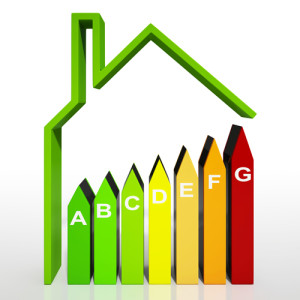How Your Home Insurance Rate is Determined

It pays to understand the details of your coverage but most of us don’t have the attention span or time to read the entire policy.
Everyone knows that homeowners insurance is essential to protect your investment, but many of us are in the dark as to how our rate is actually determined. Insurers consider a variety of factors when calculating rates and each of them has an effect on the total cost of the policy.
It pays to understand the details of your coverage but most of us don’t have the attention span or time to read the entire policy. Industry experts highly recommend reading your policy in full and asking questions about anything you don’t understand.
Below is a quick primer on some of the most common factors that are considered when determining your homeowners insurance rate:
Cost of Rebuilding Your Home
This is what it would cost to completely rebuild your home to its former condition if it were totally destroyed. This figure is often completely different than the price that you paid for the home. Rebuilding costs can often be much higher due to rising construction costs, which includes both materials and labor.
In addition, the cost of removing the debris and remains of your home must also be factored in to the rebuilding cost. If a fire or other natural disaster destroys your home, cleaning up the build site can be expensive.
The location of your home will also impact the cost of rebuilding. A home on a hill or in a remote location will cost more than a house on a flat lot in the suburbs. All of these factors will be considered in order to arrive at the true cost of rebuilding your home.
The best way to determine your dwelling coverage or replacement cost is to use a homeowners insurance calculator to help you get an estimate of the cost to rebuild your home.
Home Materials
The materials used in your home will impact your premium. Homes that are built out of stone, stucco, or brick will be cheaper to insure than a house built from wood which is much more flammable.
Age of Your House
Older homes are usually more costly to insure than a new home. This is due to the fact that they often contain materials that may be difficult and expensive to replicate. In addition they may have unique features that are difficult and costly to rebuild.
Distance to Fire Station
Insurers will assign your home a fire protection rating, which will affect your rates. Basically they look at how far away you are from a water source and how quickly the nearest fire department can respond in the event of a fire. The quicker the response time, the lower your premium.
Neighborhood Claim Rates
If your neighborhood has a large number of claims for things such as burglaries or vandalism, expect to pay more for your coverage. The same is true for weather related claims, if you live in tornado alley or get hit by hailstorms on a regular basis, your premium will be impacted.
Your Claim History
Numerous claims on your record will lead to higher rates. A large number of small claims will lead most insurers to label you as a higher risk client. Most experts recommend paying small claims out of pocket, saving your insurance for catastrophic events.
Fido
While you may love your pit bull, your insurer probably won’t. It may seem unfair, but if you have the wrong breed of dog, your premium is going up. In some cases you may have a hard time find an insurer willing to write a policy.
